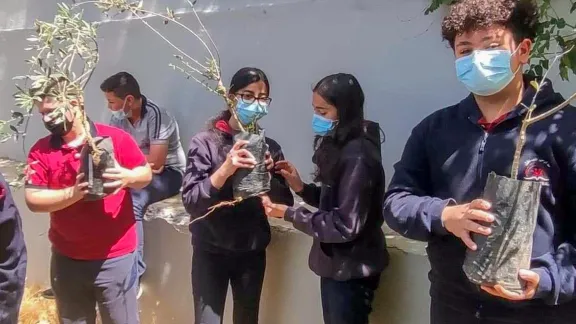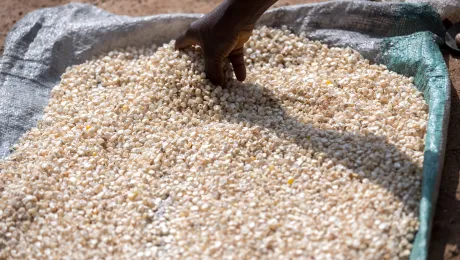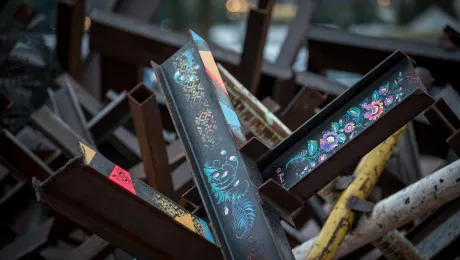
The Environmental Education Center (EEC) of the Evangelical Lutheran Church in Jordan and the Holy Land (ELCJHL) educates youth to be stewards of creation through learning programs and practical activities such as planting olive trees. Photo: EEC
Strengthening the young generation for climate justice advocacy through empowerment and practice
(LWI) - The Environmental Education Center (EEC) of The Evangelical Lutheran Church in Jordan and the Holy Land (ELCJHL) educates youth to be stewards of creation through learning programs and practical activities such as planting olive trees. A recent initiative involved schools in the region.
“We believe that the most important environmental justice work is yet to come and will likely fall into the next generation’s hands. With this in mind, we must provide them with as many resources, skillsets, and capabilities for informed discussion and action as possible,” says Joan Ayyad. She is the Environmental Educator and Program Coordinator for the EEC and led the recent Palestinian Youth Climate Justice Initiative.
The initiative was based on close collaboration with schools in the area and aimed “to build up strong, skilled, and environmentally educated youth in Palestine,” Ayyad says. Also, “an action component is crucial in teaching youth how to care for the earth, and provides a sense of accomplishment, teamwork, and community bonding.”
The climate education program developed by the EEC included workshops and practical activities such as individual research, photography competitions, and tree planting. It focused on biodiversity and climate justice in Palestine. “I was very proud to see how engaged students were and how this program allowed their natural curiosity to thrive,” says Ayyad.
Protecting unique biodiversity
In lectures on biodiversity, she spoke about the unique habitat of Palestine and what threatens it. Among others, human behavior and impaired freedom of movement had negative impacts on habitat health.
During a brainstorming session on combating these effects, students presented innovative ideas to retain biodiversity. For example, they suggested planting native and endangered plants to combat species extinction and destruction of biodiversity. As bird hunting poses a severe threat to endangered species, they came up with ideas to raise awareness about the harm this causes in order to reduce it. The students also developed ideas on respecting wild animals and conceptualized a magazine to advocate for environmental health and awareness.
Teachers and EEC educators discussed potential ways to put these ideas into action with the students. These included community connections, best practices in awareness campaigns, and access to further information on these issues.
The heritage and economic value of olive trees
A very hands-on activity for students was planting olive trees. They also learned about the importance of these trees to the Palestinian identity and the economic health of farmers. In addition, Ayyad and her team, taught students proper techniques for digging and using planting tools.
“Olive trees are important to Palestinians for many reasons,” Ayyad explains. First, they generate income for Palestinian farmers, many of whose families have been farming the same land for centuries. Secondly, olive trees enrich and build up the environment in Palestine. An olive tree releases more oxygen than the average tree, so their presence helps clean the air, provide habitat for wildlife, and enrich the soil to help other plants grow. “Finally, olive trees hold political meaning in Palestine,” Ayyad says. “Many farmers hold the claim to their land by continuing to farm the olive trees. Overall, olive trees have been a symbol of Palestinian steadfastness and a revered staple of Palestinian culture.”
Looking back at the project’s success, Ayyad is confident that this initiative will continue. “We plan to continue this work through more workshops, competitions, and environmental activism campaigns.” The next topic she would like to raise is the use of natural resources in Palestine.
“The EEC instills a crucial sense of environmental awareness and responsibility in our youth and provides them with opportunities to better engage with their communities,” said Sani Ibrahim Azar, Bishop of the Evangelical Lutheran Church in Jordan and the Holy Land, about the project. The youth climate justice project was supported by The Lutheran World Federation (LWF).
By LWF/A. Weyermüller


